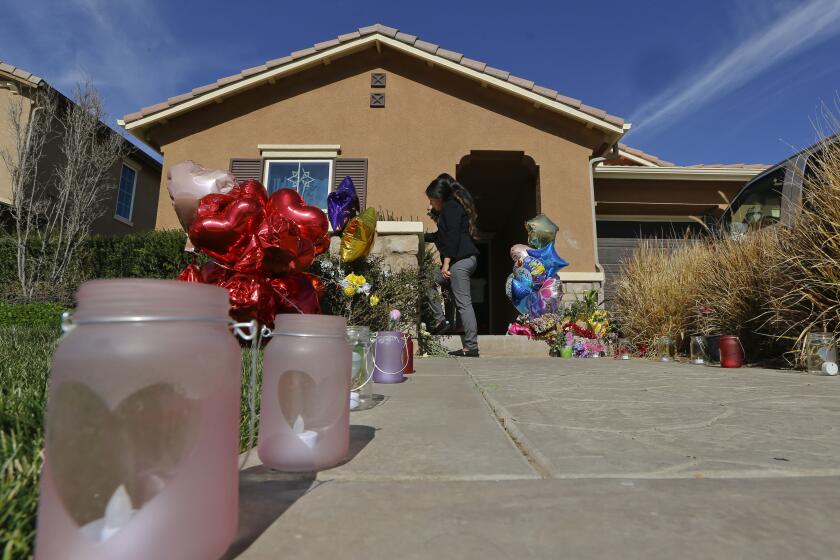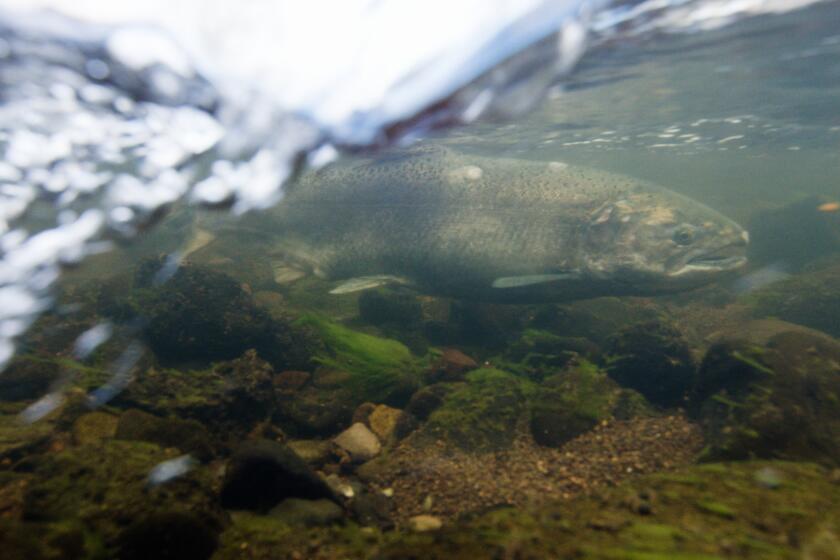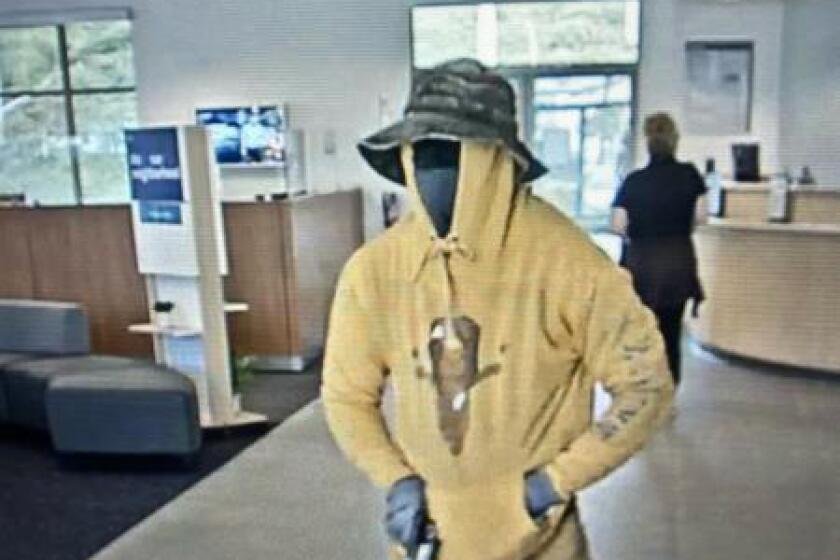Inmate’s Lawsuit Says Deputy D.A. Defamed Him in News Article
A convicted kidnapper and perjurer who was at the center of the 1980s Los Angeles County jailhouse informant scandal has filed suit accusing the district attorney’s office of besmirching his reputation.
Leslie Vernon White, 44, who is now in state prison on a 1998 drug conviction, said in a federal court complaint filed Wednesday that Chief Deputy Dist. Atty. Curt Livesay defamed him by calling him a liar and making other derogatory comments in a Los Angeles Times article last month.
The allegation is part of a 16-page complaint accusing the district attorney’s office of conducting a “sham” investigation into a claim that White lodged last year alleging that Redondo Beach police illegally searched his car after a traffic stop in December 1997 and then arrested him on suspicion of drug possession.
White, who was convicted of the charge and sentenced to nine years in prison, acknowledged in a telephone interview that it may be difficult for some people to regard as serious a convicted perjurer’s complaint that someone defamed him.
“I have to admit anyone who reads that allegation, at first blush, would laugh at it because of my history,” he said. But White said that he has spent 14 years trying to overcome his “reputation for lying” and that Livesay destroyed the success he has had in restoring his credibility.
In the suit, which he filed under a second name that he uses, Christopher Scott, White targets Livesay, Dist. Atty. Steve Cooley and five others in the district attorney’s office as defendants. He seeks $3 million in damages from each and demands that Livesay publicly retract his comments.
The suit seeks the appointment of a special prosecutor to investigate White’s complaints that Redondo Beach police lied in their reports and in court about their reason for searching his car in 1997 and that a prosecutor knew about the deception and failed to expose it. He also asks that the special prosecutor determine whether the district attorney’s office is covering up the alleged misconduct.
White charges in his suit that the actions of the district attorney’s office have interfered with his ability to effectively use the courts to challenge his drug conviction. He said prosecutors are driven by a “burning hatred” of him for exposing the misuse of jailhouse informants by officers and prosecutors in the 1980s.
Livesay, who at the time supervised the district attorney’s jailhouse informant program, declined to comment on the suit.
The scandal involved White, at the time a convicted robber and kidnapper, and other jail informants who concocted confessions from other inmates and traded that information to prosecutors and police in return for favors. White admitted to lying under oath as a prosecution witness 12 times.
The scandal was a major embarrassment for the district attorney’s office. About a year after a critical grand jury report in 1990, Livesay temporarily retired from the office and went into private practice.
In 1997, Redondo Beach police stopped White for driving with a suspended license and for an outstanding warrant, which also was for driving with a suspended license, court papers say.
Officers impounded his vehicle and said they searched it to look for narcotics and to inventory its contents. They said they found a small amount of drugs hidden under the hood behind a headlight. Later in court, White tried to prevent the prosecution from using the drugs as evidence.
He alleged that the inventory search was illegal because police conducted it solely to look for drugs. When a Superior Court judge rejected his claims in 1998, White, facing a possible third-strike conviction, pleaded no contest to possession and was sentenced to nine years in prison. White challenged the search on appeal, but lost again in 1999.
In July 2000, he submitted a complaint about the conduct of the officers and the prosecutor to the district attorney’s office and demanded an investigation.
Five months later, Livesay returned to the district attorney’s office as Cooley’s interim chief deputy, and White was one of his first callers, Livesay told The Times.
“He [White] says, ‘I’d like to tell you about something,’ and ‘I think you can help me out some too,’” Livesay recalled in the Times article. Livesay said White was “untrustworthy and a liar.”
White said in his suit that he communicated with Livesay by letter, not by phone. He also complained that the veteran prosecutor unfairly gave a false impression in the news article that White is “back to his old tricks.” White said that Livesay’s derogatory remarks about him were a “preemptive strike” to discredit his allegation that the district attorney’s investigation into his complaint was a sham designed to cover up police and prosecutorial misconduct.
White said that during a 2001 taped interview with two investigators from the district attorney’s office, he provided them with evidence to support his complaint about the arrest. He also said one of the investigators conceded that the search was improper.
But the district attorney’s office said that the investigator made no such concession and that White’s information did not substantiate his complaint about his arrest.
The district attorney’s office has rejected a Times request to listen to the tape recording, saying it is investigative material exempted from the public records act.
In addition to suing the district attorney’s office, White has filed a separate legal action asking the federal court for a hearing to again challenge his drug conviction. That case is pending.
More to Read
Sign up for Essential California
The most important California stories and recommendations in your inbox every morning.
You may occasionally receive promotional content from the Los Angeles Times.










